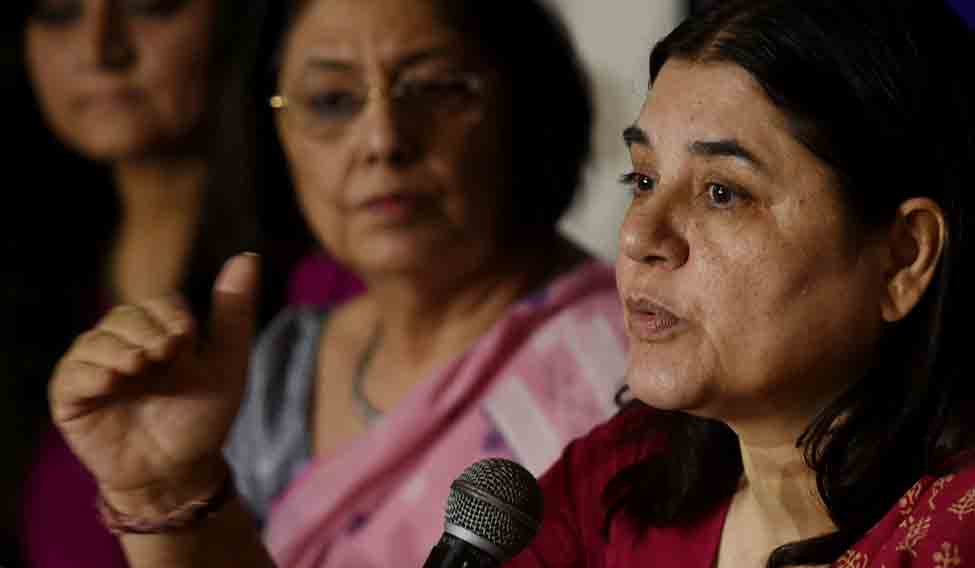Union Minister Maneka Gandhi on Tuesday released the draft of National Policy for Women, which seeks to address emerging challenges confronting women. It features provisions for protection of women against cyber crime, security to surrogate mothers and bringing gender sensitivity in family planning policies.
The policy provides a road map for dealing with women's issues for next 15-20 years and will replace the earlier policy of 2001.
The new policy will enable the government to recognise single women—"divorced, widowed and unmarried women"—as independent entities.
Noting the last national policy on women was formulated was in 2001, Gandhi said: "This policy has come after 15 years... The attitude of women towards themselves has changed.
"Fifteen years ago, women were happy to get what they were given. Now we demand... and our demands are more defined."
The draft policy says maternal and pre-natal mortality remains a key priority, but also focuses on issues like "gender transformative health strategy", which recognises women's reproductive rights with a shift. The draft, as an example, cited shifting the focus of family planning from female sterilisation to male sterilisation.
It also calls for ushering in changes in the societal attitude towards women and usher in behavioural changes involving men and boys and institutions of family and women's organisations.
The policy also suggests that childcare, dependant care and paid leave facilities be made available to not just women, but also to men.
The priority areas laid down by the policy include health, food security and nutrition, education, economy, governance and decision making, violence against women and climate change.
"This policy is coming after 15 years. In these years, many things have changed and the most important of them is women's attitude towards challenges. The most important part of the policy is that it shifted from 'just welfare' to 'welfare with heavy dose of rights' in it which is reflective of change in women's attitude," Gandhi said.
The policy is expected to focus on increasing trends of crime against women, including rape, trafficking and dowry, along with the expansion of new work opportunities for career women. "The draft has been made in consultation with a lot of women, lawyers, journalists, bureaucrats and non-working women to see what we can do in terms of defining government action in the next 15-20 years," the minister said.
In education sector, priority will be accorded to increased enrolment and retention of adolescent girls in schools through provision of gender-friendly facilities like functional girls' toilets and higher recruitment of women teachers.
"We have already achieved enrollment but have to focus on girls dropout rates and their higher education. Employment based education and gender sensitivity at the school level is also to be focused upon," a ministry official said.
In order to achieve higher participation of women in governance and decision making, the policy talks about establishing mechanism to promote women's presence in all the three branches of the government including the legislature, judiciary and executive.
The draft also seeks to address six emerging issues of women, including review of "personal and customary laws" and calls for a comprehensive solution through restructuring of policies and ensuring equal rights.
"Given the plurality of the personal laws, a review is required of the personal and customary laws in accordance with the Constitutional provisions. This will enable equitable and inclusive and just entitlements for women," the policy says.
It suggests developing protective measures for dealing with increasing incidents of cyber crime against women.
"With technology advancements, there has been incidences of fraud, misuse of information uploaded on the cyberspace and hence there is a need for developing protecting measures for citizens keeping in view that the victims of such frauds are largely women," the policy added.





